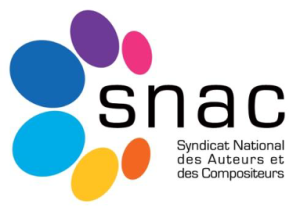MEMBERS OF THE EUROPEAN WRITERS’ COUNCIL
The European Writers’ Council (EWC) is a non-profit non-governmental federation constituted by currently 49 organisations from 31 countries in the EU and EEA area, including Iceland, Norway, Montenegro, Macedonia, Switzerland, and the United Kingdom, representing over 220.000 writers of all genres.
The EWC is the largest federation worldwide, solely representing writers from the book sector.



 A*dS is the professional association of all authors as well as literary translators in Switzerland. It was founded in 2002 and represents over 1000 members (authors and translators of all literary genres in all four national languages as well as other languages present in Switzerland.
A*dS is the professional association of all authors as well as literary translators in Switzerland. It was founded in 2002 and represents over 1000 members (authors and translators of all literary genres in all four national languages as well as other languages present in Switzerland.
 The Union of Bulgarian Writers (UBW) is an authors association founded in 1913 with Honorary President Ivan Vazov. The SBU brought together important masters in the field of fiction and became a major organisation with serious influence in the field of culture. In years of prosperity and national disasters, the SBU has always upheld humane values. The popularization of the contribution of Bulgarian writers in national, European and world literature and the active public position of artists are a sign of the aesthetic and social importance of the Writers’ Union.
The Union of Bulgarian Writers (UBW) is an authors association founded in 1913 with Honorary President Ivan Vazov. The SBU brought together important masters in the field of fiction and became a major organisation with serious influence in the field of culture. In years of prosperity and national disasters, the SBU has always upheld humane values. The popularization of the contribution of Bulgarian writers in national, European and world literature and the active public position of artists are a sign of the aesthetic and social importance of the Writers’ Union. The Association of Catalan Language Writers (AELC, Associació d’Escriptors en Llengua Catalana) was created on the 27th of October 1977.
The Association of Catalan Language Writers (AELC, Associació d’Escriptors en Llengua Catalana) was created on the 27th of October 1977.
 The Croatian Writers Society (Hrvatsko društvo pisaca, HDP) is a non-governmental, non-political, professional organization of writers founded in 2002.
The Croatian Writers Society (Hrvatsko društvo pisaca, HDP) is a non-governmental, non-political, professional organization of writers founded in 2002. The Cyprus Writers Union was established in Nicosia in 1978 with the following main objectives:
The Cyprus Writers Union was established in Nicosia in 1978 with the following main objectives: The Literature and Criticism Association (LCA) was founded in 2019 in Nicosia Cyprus in order to represent writers and critics who are not affiliated with the other literary associations in our country, and especially to provide opportunities to young writers to develop their talent.
The Literature and Criticism Association (LCA) was founded in 2019 in Nicosia Cyprus in order to represent writers and critics who are not affiliated with the other literary associations in our country, and especially to provide opportunities to young writers to develop their talent. The Czech Writers Association joins together both poets and prose writers. The organisation was founded in 2015 by Czech writers who lacked a functional platform that would advocate living literature’s interests in the Czech Republic.
The Czech Writers Association joins together both poets and prose writers. The organisation was founded in 2015 by Czech writers who lacked a functional platform that would advocate living literature’s interests in the Czech Republic.
 Danish Authors’ Society was founded in 1894 and today comprises app. 1300 authors, translators and illustrators.
Danish Authors’ Society was founded in 1894 and today comprises app. 1300 authors, translators and illustrators.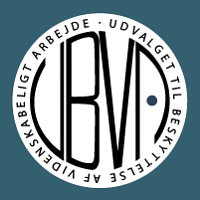 UBVA The Committee for the Protection of Scientific and Scholarly Work, UB-VA, is a standing committee under the Danish Confederation of Profes-sional Associations (Akademikerne). The Committee
UBVA The Committee for the Protection of Scientific and Scholarly Work, UB-VA, is a standing committee under the Danish Confederation of Profes-sional Associations (Akademikerne). The Committee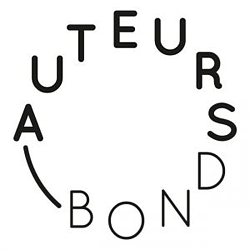 The Auteursbond is the Dutch professional and interest group of writers and translators. Our association has a board, an advisory board and an office organisation. We represent more than 1,500 authors, divided into nine sections.
The Auteursbond is the Dutch professional and interest group of writers and translators. Our association has a board, an advisory board and an office organisation. We represent more than 1,500 authors, divided into nine sections. Estonian Writers’ Union as a professional association of writers and literary critics was founded on October 8, 1922 at Tallinn Town Hall. The number of its members at the time was 33 and by 1940 the membership had increased by 20 more people. During the first independence period of Estonia the chairmanship of the creative union was held by Friedebert Tuglas, Eduard Hubel (Mait Metsanurk), Karl Ast (Rumor), Henrik Visnapuu and August Jakobson.
Estonian Writers’ Union as a professional association of writers and literary critics was founded on October 8, 1922 at Tallinn Town Hall. The number of its members at the time was 33 and by 1940 the membership had increased by 20 more people. During the first independence period of Estonia the chairmanship of the creative union was held by Friedebert Tuglas, Eduard Hubel (Mait Metsanurk), Karl Ast (Rumor), Henrik Visnapuu and August Jakobson.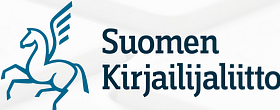 The Union of Finnish Writers is an ideological and professional organization representing fiction authors writing in Finnish.
The Union of Finnish Writers is an ideological and professional organization representing fiction authors writing in Finnish. The Association of Finnish Non-fiction Writers is Finland’s biggest writer organisation.
The Association of Finnish Non-fiction Writers is Finland’s biggest writer organisation. De Vlaamse Auteursvereniging is the association of interests of and for Flemish authors. It represents authors of prose, poetry, theatre, scenarios, children’s and youth literature, literary non-fiction and comics as well as illustrators and literary translators.
De Vlaamse Auteursvereniging is the association of interests of and for Flemish authors. It represents authors of prose, poetry, theatre, scenarios, children’s and youth literature, literary non-fiction and comics as well as illustrators and literary translators.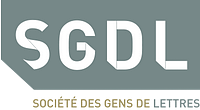 La Société des gens de lettres (SGDL) is an authors association founded in 1838 by Honoré de Balzac, Victor Hugo, Alexandre Dumas, and George Sand.
La Société des gens de lettres (SGDL) is an authors association founded in 1838 by Honoré de Balzac, Victor Hugo, Alexandre Dumas, and George Sand.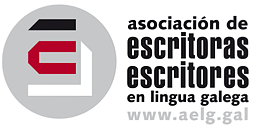 The Association of Writers in Galician Language (AELG) is the official entity that gathers over 415 writers of Galician literature in all its manifestations: poetry, fiction, theatre, essay, scientifical writing, translations…
The Association of Writers in Galician Language (AELG) is the official entity that gathers over 415 writers of Galician literature in all its manifestations: poetry, fiction, theatre, essay, scientifical writing, translations… The SYNDIKAT, the Association of German Language Crime Writers, was founded in 1986. With 750 authors from Germany, Austria and Switzerland, SYNDIKAT is the largest association for suspense literature in the German-speaking world and covers the entire genre from regional crime fiction to international thrillers. At SYNDIKAT bestselling authors, genre-spanning all-rounders, ambitious part-time writers and newcomers meet at eye level to exchange ideas and organise common interests. This takes place primarily at the annual festival, the CRIMINALE.
The SYNDIKAT, the Association of German Language Crime Writers, was founded in 1986. With 750 authors from Germany, Austria and Switzerland, SYNDIKAT is the largest association for suspense literature in the German-speaking world and covers the entire genre from regional crime fiction to international thrillers. At SYNDIKAT bestselling authors, genre-spanning all-rounders, ambitious part-time writers and newcomers meet at eye level to exchange ideas and organise common interests. This takes place primarily at the annual festival, the CRIMINALE. The German Writers’ Union (VS), founded in 1969 with the participation of Heinrich Böll, Ingeborg Drewitz, Günter Grass and Martin Walser is the largest federal association for authors and translators in Germany with almost 4,000 members. Members include Nobel Prize winner Elfriede Jelinek, criminal writer Friedrich Ani, international bestselling author Nina George, “Connie” creator Liane Schneider, Jo Nesbø translator Hinrich Schmidt-Henckel and actor Ottfried Fischer. In addition, bloggers, self-publishers and regularly published authors of short stories and plays are also members and benefit from legal advice and the political voice of the VS.
The German Writers’ Union (VS), founded in 1969 with the participation of Heinrich Böll, Ingeborg Drewitz, Günter Grass and Martin Walser is the largest federal association for authors and translators in Germany with almost 4,000 members. Members include Nobel Prize winner Elfriede Jelinek, criminal writer Friedrich Ani, international bestselling author Nina George, “Connie” creator Liane Schneider, Jo Nesbø translator Hinrich Schmidt-Henckel and actor Ottfried Fischer. In addition, bloggers, self-publishers and regularly published authors of short stories and plays are also members and benefit from legal advice and the political voice of the VS. The Hellenic Authors’ Society (formerly the “Greek Writers’ Society”) is a non-governmental organization established on November 22, 1981 and supported by the Ministry of Culture. The Hellenic Authors’ Society primary aim is to act as a hub of communication between its members, and to further the interests in Greek writers. It organises local and international cultural events and cooperates with related organisations within Europe and beyond. Among others, the website contains a database of members.
The Hellenic Authors’ Society (formerly the “Greek Writers’ Society”) is a non-governmental organization established on November 22, 1981 and supported by the Ministry of Culture. The Hellenic Authors’ Society primary aim is to act as a hub of communication between its members, and to further the interests in Greek writers. It organises local and international cultural events and cooperates with related organisations within Europe and beyond. Among others, the website contains a database of members. The Society of Hungarian Authors is a professional, interest protection and service provision organisation that has been founded by writers who respect the works of and are spiritually close to each other.
The Society of Hungarian Authors is a professional, interest protection and service provision organisation that has been founded by writers who respect the works of and are spiritually close to each other. The Hungarian Writers’ Association, established in 1945, furthers the cause of Hungarian literature and of the society of Hungarian writers. It wishes to represent the interests of literature and of writers, it protects the institutions in the domain of literature, it hosts literary events, organizing meetings with writers, literary debates and book presentations.
The Hungarian Writers’ Association, established in 1945, furthers the cause of Hungarian literature and of the society of Hungarian writers. It wishes to represent the interests of literature and of writers, it protects the institutions in the domain of literature, it hosts literary events, organizing meetings with writers, literary debates and book presentations. The Writers’ Union of Iceland (Rithöfundasamband Íslands – RSÍ) is an ideological and professional organization representing authors. The Union was founded in 1974 and has now approximately 600 members including poets, novelists, dramatists, scriptwriters, writers of young adult/children’s books, authors of academic works, and translators. The first organization of Icelandic writers was founded when writers got their own chapter within the Artists Union of Iceland 1928. From 1945, Icelandic writers formed two associations along left/right political lines but from 1957 they worked closely together until they eventually merged in 1974. The Union is led by an elected board of 5 members and 2 deputy members, chaired by author Mr. Karl Ágúst Úlfsson. The Executive Director is Mrs. Ragnheiður Tryggvadóttir.
The Writers’ Union of Iceland (Rithöfundasamband Íslands – RSÍ) is an ideological and professional organization representing authors. The Union was founded in 1974 and has now approximately 600 members including poets, novelists, dramatists, scriptwriters, writers of young adult/children’s books, authors of academic works, and translators. The first organization of Icelandic writers was founded when writers got their own chapter within the Artists Union of Iceland 1928. From 1945, Icelandic writers formed two associations along left/right political lines but from 1957 they worked closely together until they eventually merged in 1974. The Union is led by an elected board of 5 members and 2 deputy members, chaired by author Mr. Karl Ágúst Úlfsson. The Executive Director is Mrs. Ragnheiður Tryggvadóttir. The Irish Writers Union is the main advocacy body for Irish writers and it is open to Irish writers and writers of Irish interest publications, wherever they are based. We offer members publishing advice, contract advice and promotion via our website and social member channels. The union was founded in 1986 by authors wishing to organise as writers to resist censorship in Ireland and in general to provide a voice for the collective expression of writers on matters pertaining to their profession. The union is managed by a steering committee which is elected annually at the AGM.
The Irish Writers Union is the main advocacy body for Irish writers and it is open to Irish writers and writers of Irish interest publications, wherever they are based. We offer members publishing advice, contract advice and promotion via our website and social member channels. The union was founded in 1986 by authors wishing to organise as writers to resist censorship in Ireland and in general to provide a voice for the collective expression of writers on matters pertaining to their profession. The union is managed by a steering committee which is elected annually at the AGM. Year Founded: Founded in 1940 as “The Writers Union of Latvian SSR”.
Year Founded: Founded in 1940 as “The Writers Union of Latvian SSR”.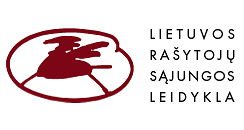 The LWU Literary Foundation
The LWU Literary Foundation Akkademja tal-Malti was the prime regulatory body responsible for the Maltese language from the early 20th century up to the end of the millennium, when a Government sponsored law was passed to protect issues related to the national language. On joining the European Union, Maltese became one of the recognised languages of the EU – no mean achievement for a language spoken by less than half a million people.
Akkademja tal-Malti was the prime regulatory body responsible for the Maltese language from the early 20th century up to the end of the millennium, when a Government sponsored law was passed to protect issues related to the national language. On joining the European Union, Maltese became one of the recognised languages of the EU – no mean achievement for a language spoken by less than half a million people. The Montenegrin Society of Independent Writers (CDNK) was founded in 1990 as a counterweight to the activities of the Montenegrin Official Writers’ Association with the aim of counteracting the then policy of war and ethnic cleansing.
The Montenegrin Society of Independent Writers (CDNK) was founded in 1990 as a counterweight to the activities of the Montenegrin Official Writers’ Association with the aim of counteracting the then policy of war and ethnic cleansing. The Norwegian Authors’ Union (Norwegian: Den norske Forfatterforening, DnF) is an association of Norwegian authors. It was established in 1893 to promote Norwegian literature and protect Norwegian authors’ professional and economic interests. DnF also works in solidarity with persecuted writers internationally.[1]
The Norwegian Authors’ Union (Norwegian: Den norske Forfatterforening, DnF) is an association of Norwegian authors. It was established in 1893 to promote Norwegian literature and protect Norwegian authors’ professional and economic interests. DnF also works in solidarity with persecuted writers internationally.[1] In the 40 years the Norwegian Non-Fiction Writers and Translators Association has existed, it has distributed over one billion kroner (about 100 million euros) in grant funding and has contributed to the publication of over 6,000 books. Every year we distribute nearly 70 million kroner (about 7 million euros) in the form of grants.
In the 40 years the Norwegian Non-Fiction Writers and Translators Association has existed, it has distributed over one billion kroner (about 100 million euros) in grant funding and has contributed to the publication of over 6,000 books. Every year we distribute nearly 70 million kroner (about 7 million euros) in the form of grants. The Norwegian Society of Authors was established in January 2018 as an alternative literary organization.
The Norwegian Society of Authors was established in January 2018 as an alternative literary organization. Norske Barne- og Ungdomsbokforfattere (Norwegian Writers for Children) was founded in 1947 and has 387 members (as of May 2022). NBU is an independent association. The purpose of the association is to safeguard the professional and financial interests of Norwegian authors of children´s fiction-literature, as well as to protect and promote Norwegian children’s literature.
Norske Barne- og Ungdomsbokforfattere (Norwegian Writers for Children) was founded in 1947 and has 387 members (as of May 2022). NBU is an independent association. The purpose of the association is to safeguard the professional and financial interests of Norwegian authors of children´s fiction-literature, as well as to protect and promote Norwegian children’s literature. Since its creation in May 22, 1925, the Portuguese Authors Society took on two important areas of activity: the mutualist and the cultural. The mutualist one has allowed thousands of authors to find support in old age and in sickness. As for the cultural one, it remains active, always with new proposals. Especially since the beginning of 2004, SPA turned into a dynamic cultural centre opened to the main schools of thought and creation, with its two spaces opened to the public in its two buildings in the centre of Lisbon.
Since its creation in May 22, 1925, the Portuguese Authors Society took on two important areas of activity: the mutualist and the cultural. The mutualist one has allowed thousands of authors to find support in old age and in sickness. As for the cultural one, it remains active, always with new proposals. Especially since the beginning of 2004, SPA turned into a dynamic cultural centre opened to the main schools of thought and creation, with its two spaces opened to the public in its two buildings in the centre of Lisbon.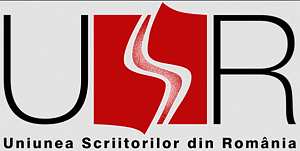 The USW is the successor to Societăţii Scriitorilor Români (S.S.R.). S.S.R. was created in 1909 and has been operating since 1949.
The USW is the successor to Societăţii Scriitorilor Români (S.S.R.). S.S.R. was created in 1909 and has been operating since 1949. The Slovene Writers’ Association is a voluntary, independent and non-profit organisation that serves and furthers the professional, social and cultural interests of Slovene writers. The activities of the Association encompass the entire Slovenian cultural space regardless of state borders.
The Slovene Writers’ Association is a voluntary, independent and non-profit organisation that serves and furthers the professional, social and cultural interests of Slovene writers. The activities of the Association encompass the entire Slovenian cultural space regardless of state borders. The SoA is the UK trade union for all types of writers, illustrators and literary translators, at all stages of their careers. We have been advising individuals and speaking out for the profession for more than a century.
The SoA is the UK trade union for all types of writers, illustrators and literary translators, at all stages of their careers. We have been advising individuals and speaking out for the profession for more than a century. The Asociación Colegial de Escritores de España (ACE) is the main reference, by tradition (in 2017 it celebrated its 40th anniversary) and number of associates, in the defence of the rights and interests of Spanish writers. It is the largest professional organization of writers in Spain and has its framework of action in the entire State, including authors who write in Spanish or Spanish or in the other constitutionally recognized languages of Spain: Basque, Galician and Catalan.
The Asociación Colegial de Escritores de España (ACE) is the main reference, by tradition (in 2017 it celebrated its 40th anniversary) and number of associates, in the defence of the rights and interests of Spanish writers. It is the largest professional organization of writers in Spain and has its framework of action in the entire State, including authors who write in Spanish or Spanish or in the other constitutionally recognized languages of Spain: Basque, Galician and Catalan. Unia Literacka is a relatively new writers’ association in Poland, constituted in Autumn 2017 and officially registered in Summer 2019. Our main goal is to represent the community of writers.
Unia Literacka is a relatively new writers’ association in Poland, constituted in Autumn 2017 and officially registered in Summer 2019. Our main goal is to represent the community of writers. Sanasto is a Finnish literary copyright society founded in 2005. Our aim is to make it possible for authors to live off their work and to provide users of literary works licences with which the use of literature is simple and easy.
Sanasto is a Finnish literary copyright society founded in 2005. Our aim is to make it possible for authors to live off their work and to provide users of literary works licences with which the use of literature is simple and easy.
